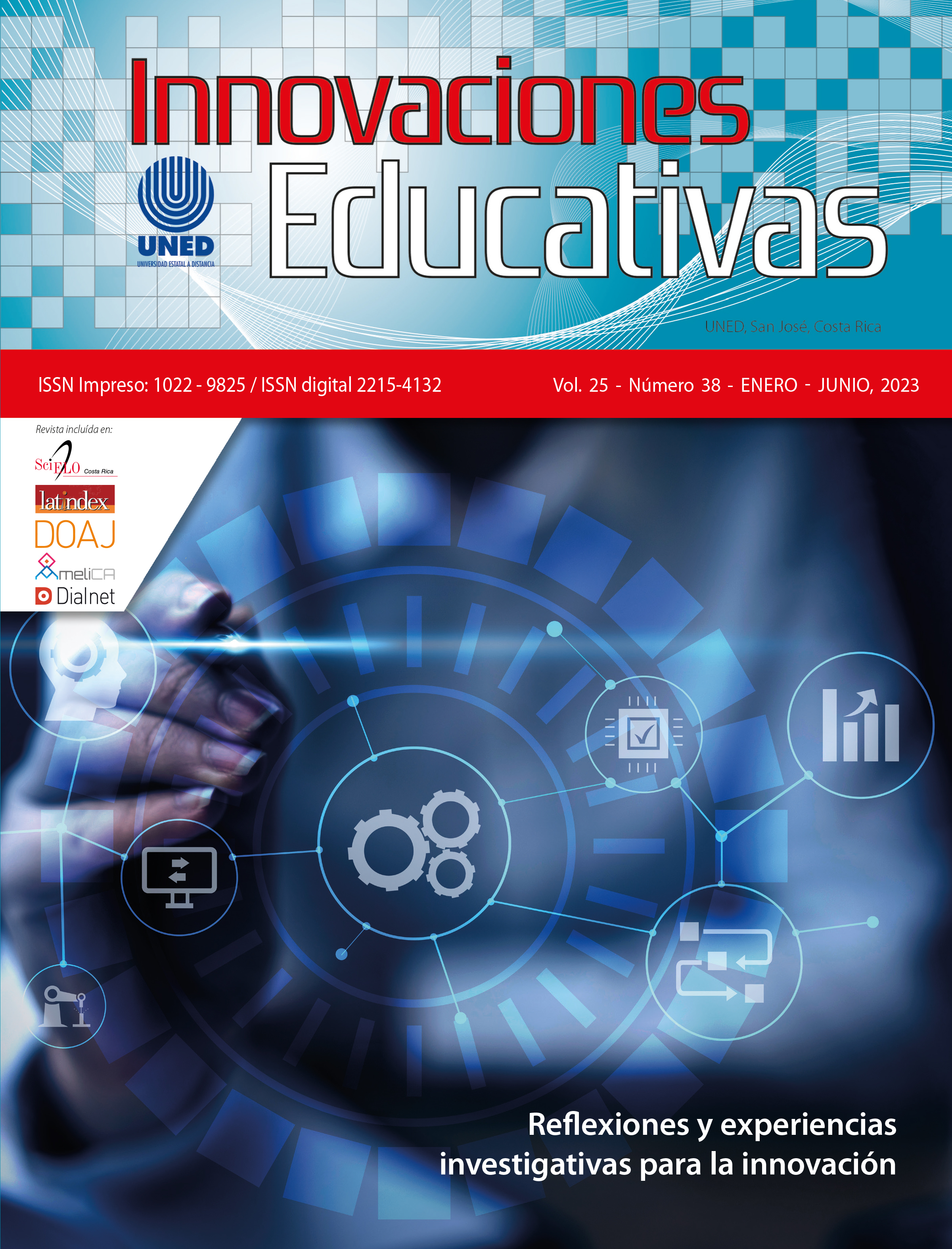A vision of the paradigm of education in the duality of educational management as part of the educational process.
DOI:
https://doi.org/10.22458/ie.v25i38.4540Keywords:
Cultural model, Teaching, Educational management, Educational trend, Duality, educationAbstract
The following essay presents a vision of the paradigm of education in an evolutionary process of change, where from the spaces of socio-educational analysis a reflection is developed on how from past times lines of thought are followed and transformed in the system by technological and information currents, together with a different vision of new educational and administrative structures. Where the administrative management in this evolution starts from the rational principles of management, to go from the dawn of educational expansion, to the didactic facts in this expansion, along with the currents of thought. Among the duality of the changes, it is determined how the change of paradigm is difficult to eradicate and survives in education, which continues to be of production, thus maintaining a "modernization" that builds ideal molds from which we measure ourselves, compare ourselves and establish what should be; while the school system legitimizes that blaming the teacher for the educational crises is to deny that they themselves (the system) are alienated in their work. A successful educational management process must be visualized in depth, based not only on the interests of economists, but also on the individual and his or her personal development in the pursuit of successful people in all personal spheres.
References
Brealey, R.; Myers, S. y Marcus, A. (2004). Finanzas Corporativas. Editorial Mc Graw Hill.
Carlson, B. (2020). Educación y mercado del trabajo en América Latina frente a la globalización. Revista de la CEPAL, (77), 123-141.
Chiavenato, I. (2018). Introducción a la Teoría General de la Administración. Editorial Mc Graw Hill.
Freire, P. (1970). La educación como práctica de la libertad. Editorial Tierra Nueva.
Freire, P. (1975). Pedagogía del oprimido. Siglo XXI Editores.
Galeano, E. (1978). Las venas abiertas de América Latina. http://www.unefa.edu.ve/CMS/administrador/vistas/archivos/las-venas-abiertas-de-america-latina.pdf
Gatto, J. T. (2003). Against School. How Public Education Cripples Our Kids, and Why. Harper's Magazine. http://harpers.org/archive/2003/09/against-school/
Gatto, J. T. (2009). Weapons of mass instruction a schoolteachers journey through the dark world of compulsory schooling. New Society Publishers.
Horkheimer, M. y Adorno, T. (1944). Dialéctica del Iluminismo. http://moviments.net/espaimarx/els_arbres_de_fahrenheit/documentos/obras/1221/ficheros/horkheimer_y_adorno_dialectica_del_iluminismo.pdf
Iserbyt, T. C. (2000). The Deliberate Dumbing Down of America. A Chronological Paper Trail. Conscience Press.
Kim, W. C. y Mauborgne, R. (1999). Innovación del valor. Lógica estratégica para un alto crecimiento de la empresa. En H. B. Liderazgo y E. P. S.A. (Eds.), Estrategias de crecimiento (pp.. 29-60). DEUSTO.
Magallón, A. M. (1993). Filosofía política de la educación en América Latina. UNAM.
Morin, E. (2019). Los siete saberes necesarios para la educación del futuro. (UNESCO, Ed., y G. Vallejo, Trad.). Organización de las Naciones Unidas para la Educación, la Ciencia y la Cultura.
PROSIC. (2008). Hacia la Sociedad de la Información y el Conocimiento en Costa Rica 2007. Universidad de Costa Rica. http://www.gobiernofacil.go.cr/e-gob/gobiernodigital/informes/PROSIC2007
Puelles, M. (2020). Política y educación en la España contemporánea. Universidad Nacional de Educación a Distancia.
Punset, E. (2011). Viaje al optimismo: las claves del futuro. Destino.
Ramírez, C. (2019). Fundamentos de la Administración. Editorial Universidad de Costa Rica.
Robinson, K. [Luis Felipe Navarro]. (2011, 24 de diciembre). Paradigma del sistema educativo [Video]. YouTube. http://www.youtube.com/watch?v=59Eqytyp1K4&feature=relatedhttp://www.youtube.com/watch?v=59Eqytyp1K4&feature=related
Ruiz, A. (2001). El destino de Costa Rica y la Educación Superior: El escenario histórico del país, la educación y el papel de la universidad. Editorial de la Universidad de Costa Rica.
Ruiz-Chaves, W., Chen-Quesada, E., y García-Martínez, J. A. (2021). La inclusión en la educación: una revisión de literatura para la gestión educativa. Innovaciones Educativas, 23(35), 211–233. https://doi.org/10.22458/ie.v23i35.3834
Salvat Editores. (2014). La Enciclopedia (Vol. 10; 14).
Towns, E. L. (1971). ROBERT RAIKES: A Comparison with Earlier Claims to Sunday School Origins. Evangelical Quarterly, 43, 68-81. http://www.biblicalstudies.org.uk/pdf/eq/1971-2_068.pdf
Downloads
Published
How to Cite
Issue
Section
License
Copyright (c) 2023 Innovaciones Educativas

This work is licensed under a Creative Commons Attribution-NonCommercial-NoDerivatives 4.0 International License.

